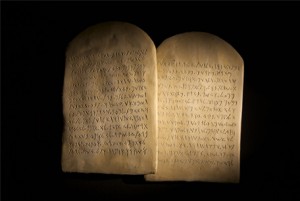MOSES (MOSHE)
fugitive prince turned bride guardian—who almost missed his calling
desireofmysoul.faith & SoulBreaths.com. All rights reserved.
First—click this pop-up for a 1-2-3 recap of God's soul-remodeling wilderness call.
READING TIME: 6 MINUTES.
Ever since my younger years—later elementary school and decades forward—God has used Moses as an example to awaken and stir my soul, guiding it into a deeper understanding of God’s Word, God’s character, God’s name, God’s holiness, God’s immensity, and God’s desire for humbled, obedient leaders and followers.
Moses was a surrendered soul, truly in love with his God. But even with all he was allowed to do under God’s hand, he was still a man.
Egypt proved a blessing for the twelve tribes of Israel during the famine years when Joseph held a high position. Then the shift emerged and Israel experienced over 400 years of oppressive enslavement.
But God’s precision timing was about to unfold—not only for Moses’s soul, but also for Israel’s.
God begins by separating Moses from the common—his birth tribe and his adopted, privileged position in Egypt—for a series of deconstructing-reconstructing encounters—meetups with God to beat all others.
God’s lightning revelations flashed through Moses’s soul
time and time again.
Moses was humbled at the burning bush,
silenced at the sight of God’s glory,
illuminated at God’s giving of the Torah.
It was a process of discovering who he was in God.
Lightning cracked through Moses’s soul when he first encountered the Egyptian beating a Hebrew slave. His response was a natural one. He brought down the Egyptian to help raise up that slave.
Moses’s destiny burst forth for a moment, like a firefly flash . . . a hint of what was to come, what would be birthed . . . a foretaste of the servant redeemer that his soul was meant to be.
From that major lightning crack across the sky at the burning bush, his soul’s relationship with the living God rose to such a magnitude that the flashes of lightning became his new norm.
Times on the mountain, glory times in the tent. It all was part and parcel of what it would mean—for him and us—to flow in God’s presence, spirit, and the prophetic.
BUT MOSES ALMOST MISSED IT
Torah scholar/commentator/author Avivah Zornberg gave some insight about “The Transformation of Pharoah, Moses, and God,” during an interview by OnBeing.com’s Krista Tippet.
Moses argued with God for seven days no less when he was first called to lead Israel. His thinking was rooted in earthly, physical standards, not in a heavenly perspective.
Internal resistance was stirring in his soul.
Psychologically, Zornberg says, Moses—like Pharoah and the Hebrews—has an unwillingness to open himself to an alternative reality.
He blames it on his speech—in the Hebrew the wording is heavy (kaved, kah-vehd,כָּבֵד). Moses says he’s got a heavy/impeding mouth and heavy/impeding tongue: כְבַד-פֶּה וּכְבַד לָשׁוֹן. Clearly, a negative connotation.
There’s another word association, per Zornberg.
The Hebrew word for heavy (kaved) is the same word used to describe Pharoah’s hardness of heart during the ten plagues—with the negative connotation of being closed in/off, impervious, resistant.
[Note: Kaved is not kavod—ka-vohd (long o sound) (כָּבוד) means glory or honor. Same shoresh (root), so there’s a link. Yet, as we’re seeing, kaved often reflects a negative usage; kavod, a positive one.]
Was the heavy (kaved) tongue of Moses also closed off, resistant to God?
Moses, per Zornberg, appears willing to forego the whole opportunity to redeem Israel, seeing himself as not the right person for the job. He does recognize, she posits, that an “operation” of sorts is needed—since Moses is like a babe in need of a circumcision and refers to himself as a man of uncircumcised lips.
However, this “heaviness,” an inability to open up to God and His word—psychologically, spiritually, emotionally, or otherwise—appears to go well beyond Moses, Israel’s exodus years, and Pharoah.
The Cambridge Bible commentary states the “closed in” or “impervious to good impressions” wording in regards to a “heavy, uncircumcised heart” appears elsewhere in the Tanakh: Leviticus 26:41, Jeremiah 9:25(26), and Ezekiel 44:7,9.
The wording also is used similarly when speaking of the ear, in Jeremiah 6:10, revealing that the nation heard imperfectly.
I dare say this “heaviness” is a human condition. One that only a spiritual surgery in God’s wilderness venues can heal. Turning a no into a . . . teetering if-you-say-so.
QUESTIONABLE BRIDE—REDEEMING BRIDE GUARDIAN
Fortunately for us, Moses surrendered to God’s soul deconstructing-reconstructing process and embraced his soul’s calling—as Israel’s leader, intercessor, shepherd, bride guardian.
So much so that the Torah’s final words in Deuteronomy (Devarim) 34 say that “no prophet in Israel has since arose whom God knew face to face” and that Moses “evoked great terror before the eyes of all Israel.”
Rabbinic commentary says this great terror is none other than Moses’s shattering of the first set of tablets—which is linked to a midrash (exegesis/commentary on biblical narrative, sometimes reimagined to consider possible explanations). It goes something like this.
So there was a king, a bride-to-be, and her maidservants.
The king heads out of town on some business, putting the maidservants in care of his bride. But their character was lacking, big time. They engaged in harlotry, consequently smudging the betrothed bride’s character.
That pushed the king’s anger into overdrive. To the point where he wanted his betrothed killed and out of his life. Clean and tidy.
But the bride’s guardian was quick on his feet. As soon as he learned of the king’s intentions, he swooped in and destroyed the marriage contract: “Even if she was found wanting, she wasn’t your wife yet. So all’s good. She’s not accountable to the contract.”
Presto. No need to kill her. That appeased the king, which was a good thing because he later discovered his bride’s behavior really hadn’t been awry—just her maidservants’.
The bride’s guardian stepped in and suggested the king write a new marriage contract.
The king agrees. “Fine. But since you tore up the first one, you provide the paper and I’ll write it in my own hand.”
SOUND FAMILIAR?
Israel is found wanting—though not all of them. Moses protects her covenant with God by destroying the first marriage agreement, the first set of tablets that God had carved and written on.
Then when God is willing to redo the marriage contract, He has Moses co-labor with him by carving out the tablets that God will write on.
But the Ramban—Nachmanides, a Spanish Sephardic rabbi and noted medieval Jewish scholar—adds another component. He says Moses had a temper, i.e. killing the Egyptian and striking the rock incidents. So it wasn’t all about his acting as defender of the bride.
I tend to merge the two thoughts. When you have a critical position that has to be assigned to someone—maybe a person who will handle significant aspects of your business or oversee your health directive or your will—you need to choose someone who won’t be intimidated in making tough, God-led, wise decisions. Someone who can do that in a split moment, if needed.
That’s why I think God chose Moses. Yes, he had passion, a temper even. For Moses, when something was wrong, it was wrong. He acted on it. The excessive actions of the Egyptian, the excessive rebellion of Israel at the rock.
In his talmudic commentary Shabbat 87a, French medieval rabbi Rashi played with the reading of “ashur” (meaning “that” or “which”) for “ishur” (meaning “affirm” or “praise”) to basically suggest that when it comes to the shattered tablets, it’s as if God thanked or praised Moses for his actions.[1]
Was God saying this? “Thank you, bride guardian, for having the passion, wisdom, boldness, and courage to make the hard decision when needed to defend Israel and allow me to still make covenant with her via a new contract.”
Quite possibly.
One thing’s for certain. Through all his soul’s wilderness travails with Israel and within himself, Moses humbly steadies the course at all costs—relinquishing any rights to a personal life or family legacy . . . God’s people became his legacy.
Read all the Soul Remodeling stories:
- Soul Remodeling: Biblical Heroes [Sarah]
- Soul Remodeling: Biblical Heroes [Joseph]
- Soul Remodeling: Biblical Heroes [Moses]
- Soul Remodeling: Biblical Heroes [Jeremiah]
- Soul Remodeling: Biblical Heroes [Saul Paulus]
I’ve had my God- designed wilderness journeys to deconstruct-reconstruct my soul. How about you? These posts can shed some light and encouragement: Soul Remodeling Series: The Wilderness Call, Part 1 and Soul Remodeling Series: The Wilderness Call, Part 2.
[1] Rashi’s comment per an article called “The Marriage Contract,” appearing on www.meaningfullife.com
PHOTO CREDITS:
Blurred Arrow Target photo by Ricardo Arce on Unsplash
Broken Heart photo by Kelly Sikkema on Unsplash




